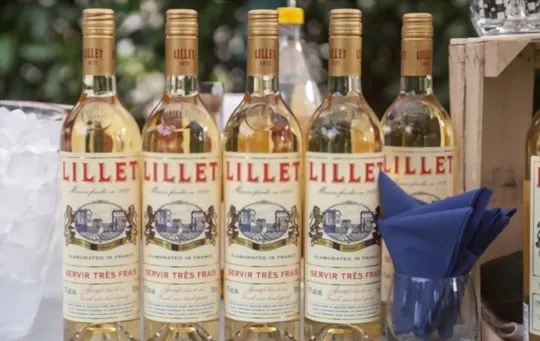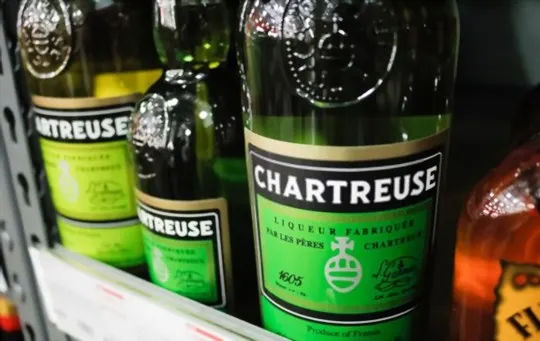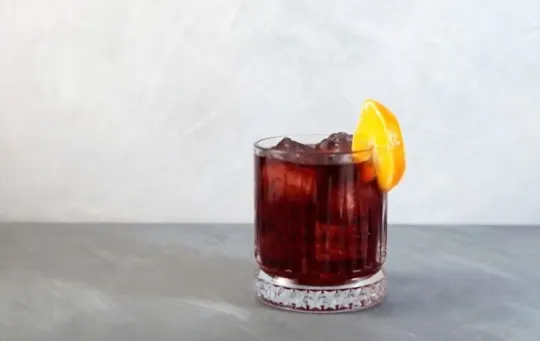Alright, picture this: You’re all set to mix up your favorite cocktail, and bam, you realize you’re out of vermouth.
What a buzzkill, right? No sweat, though.
The world of drink mix-ins is vast and filled with vermouth swaps that might just kick your drink up a notch.
From the dry zing of sherry to the sweet notes of port, there’s a whole lineup ready to step in and save your cocktail game.
Stick around as we dive into the five top picks that’ll have you mixing drinks like a pro, no vermouth needed. Cheers to that!
What’s Vermouth?

Vermouth is a type of fortified wine that is flavored with botanicals.
It originates from Italy, and its name comes from the German word for “wormwood,” which is one of the botanicals used to flavor the wine.
Vermouth is typically sweet or semi-sweet, and it ranges in color from pale white to deep red.
It can be used as an aperitif or as a component in cocktails such as martinis and Negronis.
Vermouth has a long history, dating back to ancient Greece and Rome.
In those days, it was used as a medicinal tonic.
Wormwood was thought to have medicinal properties, and it was used to treat digestive issues, headaches, and fever.
The first true Vermouth was produced in the 18th century by Antonio Benedetto Carpano in Turin, Italy.
Carpano’s recipe included herbs, roots, and brandy, and it quickly became popular throughout Europe.
By the 19th century, Vermouth had become an important ingredient in many classic cocktails.
Today, there are many different types of Vermouth available on the market, each with its own unique flavor profile.
Whether you’re enjoying a dry martini or a negroni, a touch of Vermouth can make all the difference.
The 5 Best Substitutes for Vermouth
If you’re out of Vermouth or just don’t like the taste, there are plenty of substitutes that can be used in their place.
From white wine to Lillet Blanc, here are 5 of the best substitutes for Vermouth.
1 – Lillet Blanc

Lillet Blanc is a French aperitif wine that is light and refreshing, with delicate floral and citrus notes.
It can be enjoyed on its own or used as a substitute for Vermouth in cocktails.
Lillet Blanc has a light, crisp taste with subtle hints of orange blossom and lemon.
It is slightly sweeter than Vermouth, with a smooth, velvety texture.
When substituting Lillet Blanc for Vermouth in a cocktail, simply reduce the amount of sugar syrup or other sweeteners that you would normally use.
Lillet Blanc is best served well-chilled, so be sure to keep it refrigerated until you are ready to enjoy it.
2 – White Wine

White wine is light-bodied, crisp, and refreshing, making it a versatile choice for wine lovers.
It ranges in taste from sweet to dry, and its delicate flavor pairs well with a variety of foods.
White wine is also lower in tannins than red wine, giving it a smoother texture.
When cooking with wine, substitute white wine for Vermouth to add a touch of acidity without overwhelming the dish.
Whether you’re enjoying a glass on its own or using it as an ingredient in your favorite recipe, white wine is a versatile choice that is sure to please.
3 – Chartreuse

Chartreuse is a French liqueur that is made from 130 different herbs and spices.
It is classically green in color, but it can also be yellow or white.
The flavor of Chartreuse is complex and unique, with notes of mint, sage, and rosemary.
The liqueur is also fairly sweet, with a syrupy texture.
If you are looking for a substitute for Vermouth in a cocktail recipe, Chartreuse can be a good option.
It has a similar herbal flavor profile, and the sweetness will help to balance out the other ingredients in the drink.
Just be sure to use less Chartreuse than you would Vermouth, as it is quite a bit stronger.
4 – Dry Sherry

Dry sherry is a wine made from white grapes that have been fortified with brandy and aged in oak barrels.
It is a type of fortified wine, which means that it contains more alcohol than regular wine.
The resulting drink is dry or slightly sweet and has a lower alcohol content than most wines.
Dry sherry is a popular choice for cooking because it adds flavor to food without making it too sweet.
It can also be used as a substitute for Vermouth in cocktails.
When substituting dry sherry for Vermouth, it is important to remember that the drink will be less sweet and have higher alcohol content.
As a result, it is best to use dry sherry in cocktails that are already on the sweeter side or that do not contain other strong flavors.
5 – Port Wine

Port is a type of fortified wine that originates from the Douro Valley in Portugal.
It is typically a blend of several different grape varieties and has a deep ruby color with flavors of dark fruits like plums and cherries.
Port is also fairly sweet due to the addition of a distilled grape spirit during the fermentation process.
This spirit raises the alcohol content of the wine and also halts fermentation, resulting in a dessert wine with residual sugar.
When substituting port for Vermouth, it is important to keep these sweetness levels in mind.
Dryer styles of the port can be used in place of dry Vermouth, while sweeter styles are more appropriate as substitutes for sweet Vermouth.
Experimenting with different types of the port is a great way to find the perfect match for your favorite cocktail recipes.
Conclusion
In conclusion, there are many different types of alcohol that can be used as substitutes for Vermouth.
You can choose a substitute based on the flavor profile you are looking for or the level of sweetness you prefer.
White wine, Lillet Blanc, dry sherry, and port are all good options for substituting in cocktails.
Chartreuse can also be used as a substitute, but it is important to remember that it is quite a bit stronger than Vermouth.
No matter what type of alcohol you choose, be sure to experiment until you find the perfect match for your taste buds.

The 5 Best Substitutes for Vermouth
Ingredients
- Lillet Blanc
- White Wine
- Chartreuse
- Dry Sherry
- Port Wine
Instructions
- Pick your favorite substitute from the list above.
- Follow cooking directions for your selected substitute with the proper ratio of ingredients.

Andrew Gray is a seasoned food writer and blogger with a wealth of experience in the restaurant and catering industries. With a passion for all things delicious, Andrew has honed his culinary expertise through his work as a personal chef and caterer.
His love for food led him to venture into food writing, where he has contributed to various online publications, sharing his knowledge and insights on the culinary world. As the proud owner of AmericasRestaurant.com, Andrew covers a wide range of topics, including recipes, restaurant reviews, product recommendations, and culinary tips.
Through his website, he aims to inspire and educate fellow food enthusiasts, offering a comprehensive resource for all things food-related.

Leave a comment